Guest Columns
Statesman v. politician
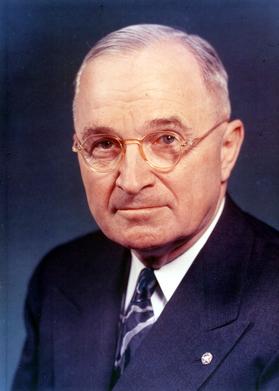
Perhaps it’s just a tall tale, but President Harry Truman reputedly said that a statesman is nothing but a dead politician. As is well known, however, Harry Truman was a down-to-earth politician who had some of the qualities of a statesman. Hence, at the risk of appearing as a romantic antiquarian, rather than a realistic political scientist, I will portray the intellectual and moral qualities that distinguish a statesman from a politician.
Defining a statesman and a politician
Let’s start on the surface by saying that a statesman regards public office as a public trust and who therefore has a strong sense of personal honor or integrity. To people high and low he will be the same person. If he is not a narcissist, his personal identity will be based primarily on his loving care and admiration of his people, hence on an intelligent awareness of that which distinguishes his people from other peoples. He will understand and be dedicated to what his fellow-citizens stand for as a Nation.
Note well that the statesman loves and admires his people not because they constitute a nation among other nations, but because they possess a distinctive and noble character that is irreplaceable. Their nationhood enriches humanity. It enlarges the scope of human adventure and creativity; it testifies to the plenitude of God. The statesman worthy of the name is therefore a guardian of his people’s unique spiritual heritage. Thus one may deem him a servant of God.
The politician is of another species. He lacks the statesman’s clear and confident sense of personal identity. He does not convey a firm and coherent set of ideas and convictions that vivify the heritage of his people, that reminds them of their triumphs and tragedies – thus conveying to his people how he shares their humble concerns and noble aspirations.
Far removed from this paradigmatic statesman is the mere politician, animated primarily by the desire for prestige and power. Such a politician merely reinforces the human-all-too-human desire for security or comfortable self-preservation. That’s the highest aspiration of democratic politicians. Even a talented politician like Netanyahu prefers security to greatness, judging from his fixation on his timid and bourgeois-minded policy of exchanging “land for peace.”
The role-playing game
Now consider what happens to a politician engrossed in democratic politics. To get elected and re-elected he must say what different individuals and groups want to hear. To win their votes he must parrot their opinions and flatter their wishes. He must therefore some oratorical skill and be a role-player.
Ponder the variegated landscape of America. In urban centers the politician will support the interests of the poor. In suburbia he will support the middle class. To the affluent he will extol self-reliance. In rural areas he will support the farmer. To the old he will emphasize health care and social security. On campuses he will wear sneakers, cheer Bob Dylan, and praise the idealism of youth. To Ivy League audiences he will say yes to a Palestinian state. To the Daughters of the American Revolution he will extol patriotism. In crime-ridden cities he will emphasize law and order. Before a national audience he will utter banal platitudes, promise peace and prosperity. In short, a democratic politician must be all things to all people.
What does this to do him, this incessant role-playing? To no small extent we shape our own character, and do so by what we say. The role-playing politician makes himself a chameleon. He depersonalizes himself; he becomes a non-person.
In this age of triumphant democracy, you don’t have to be a rocket scientist to know that politics is flimflam. In fact, almost every Department of Political Science defines politics as egoism parading as altruism.
Unhealthy cynicism
This has been holy writ in America since 1913, when Charles Beard published his Economic Interpretation of the Constitution of the United States. If economics motivated men of the caliber of America’s founding fathers, politics must be a venal and egoistic vocation. It seems to me, however, that something more inspirited their souls of these Founders, a desire for Greatness.
Cynicism mocks greatness. The cynicism that pervades the domestic politics of democracy must also apply to its foreign policies. Think of all the democratic politicians that have hobnobbed with Yasser Arafat, the godfather of international terrorism. Ian Mihai Pacepa, a former head of Romanian Intelligence, said of that villain: “I have never before seen so much cleverness, blood, and filth altogether in one man.” Nevertheless, the Clinton White House honored Arafat as its guest, and more than one Israeli leader has shaken his blood-stained hands.
What happens to democratic politicians who dignify such villains? They lose their own dignity. They exemplify the “mass man,” what Nietzsche called the “Last Man.” We have come a long way from statesman like America’s Founding Fathers. ☼
-
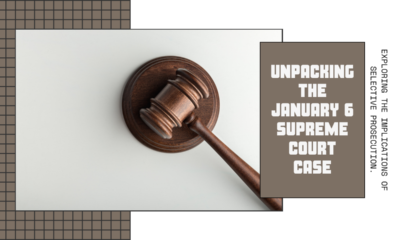
 Executive2 days ago
Executive2 days agoJanuary 6 case comes down to selective prosecution
-
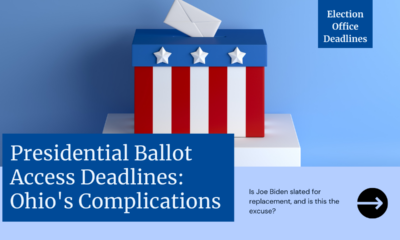
 Executive1 day ago
Executive1 day agoBiden ballot woes continue
-
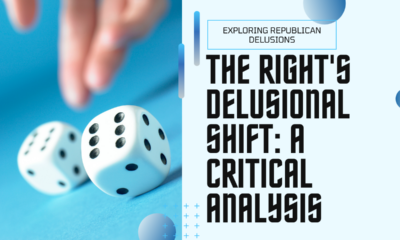
 News2 days ago
News2 days agoRolling the Dice on Republicans: Has the Right Become Delusional?
-

 Executive1 day ago
Executive1 day agoWhy Fatal Police Shootings Aren’t Declining: Some Uncomfortable Facts
-
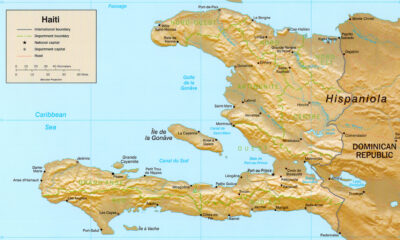
 Civilization1 day ago
Civilization1 day agoPresident Biden Must Not Encourage Illegal Mass Migration From Haiti
-

 Guest Columns1 day ago
Guest Columns1 day agoWhat Was Won in No Labels’ Crusade
-

 Constitution1 day ago
Constitution1 day agoEquality Under the Law and Conflicts of Interest in New York
-
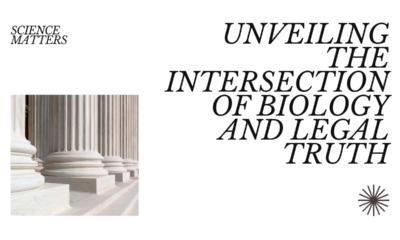
 Civilization2 days ago
Civilization2 days agoBiology, the Supreme Court, and truth





